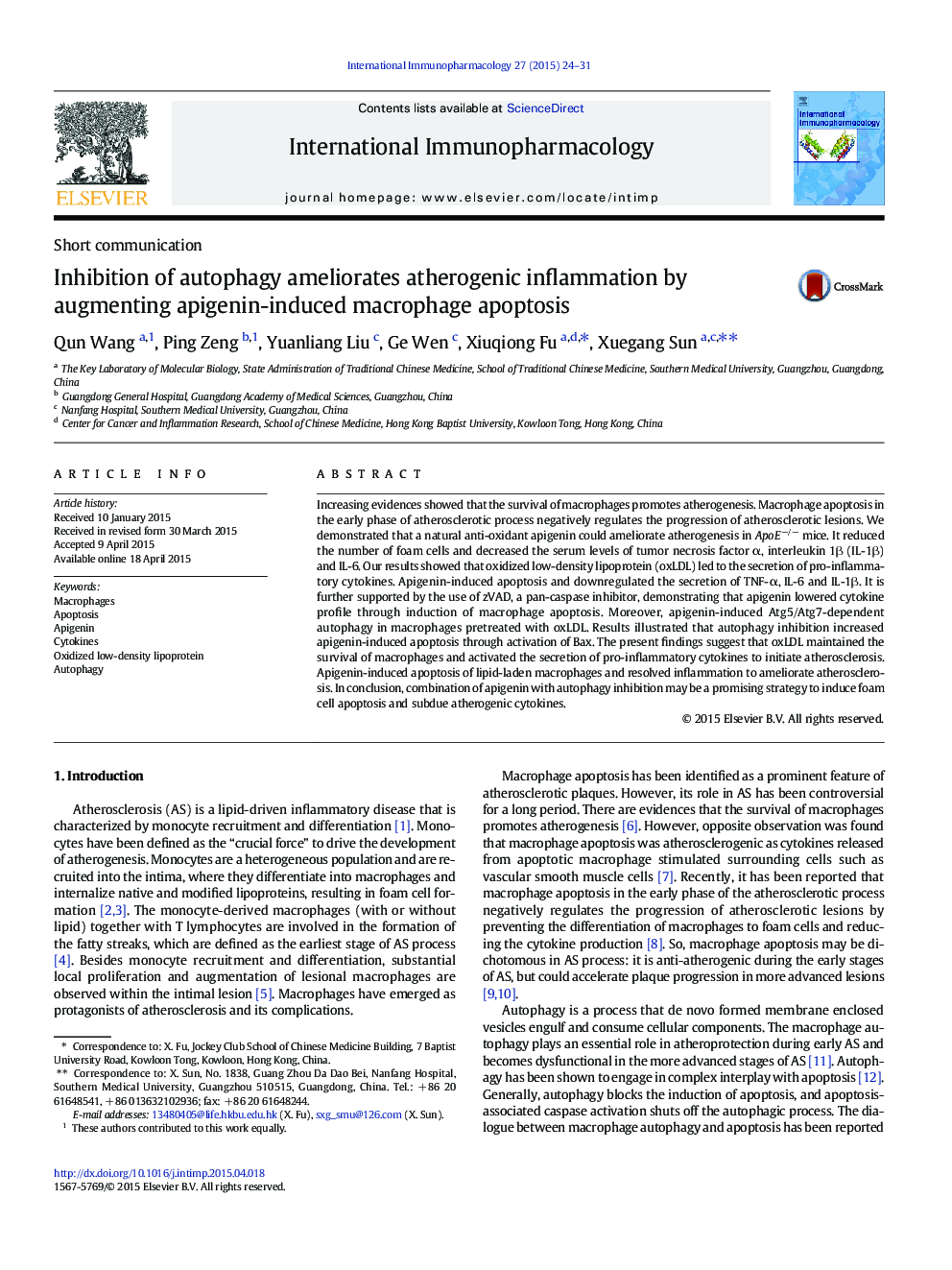| Article ID | Journal | Published Year | Pages | File Type |
|---|---|---|---|---|
| 2540655 | International Immunopharmacology | 2015 | 8 Pages |
•Apigenin ameliorates atherogenesis in ApoE−/− mice.•Apigenin induces macrophage apoptosis and downregulates pro-inflammatory cytokines.•Apigenin also induces macrophage autophagy.•Autophagy inhibition augments apigenin-induced apoptosis.
Increasing evidences showed that the survival of macrophages promotes atherogenesis. Macrophage apoptosis in the early phase of atherosclerotic process negatively regulates the progression of atherosclerotic lesions. We demonstrated that a natural anti-oxidant apigenin could ameliorate atherogenesis in ApoE−/− mice. It reduced the number of foam cells and decreased the serum levels of tumor necrosis factor α, interleukin 1β (IL-1β) and IL-6. Our results showed that oxidized low-density lipoprotein (oxLDL) led to the secretion of pro-inflammatory cytokines. Apigenin-induced apoptosis and downregulated the secretion of TNF-α, IL-6 and IL-1β. It is further supported by the use of zVAD, a pan-caspase inhibitor, demonstrating that apigenin lowered cytokine profile through induction of macrophage apoptosis. Moreover, apigenin-induced Atg5/Atg7-dependent autophagy in macrophages pretreated with oxLDL. Results illustrated that autophagy inhibition increased apigenin-induced apoptosis through activation of Bax. The present findings suggest that oxLDL maintained the survival of macrophages and activated the secretion of pro-inflammatory cytokines to initiate atherosclerosis. Apigenin-induced apoptosis of lipid-laden macrophages and resolved inflammation to ameliorate atherosclerosis. In conclusion, combination of apigenin with autophagy inhibition may be a promising strategy to induce foam cell apoptosis and subdue atherogenic cytokines.
Graphical abstractFigure optionsDownload full-size imageDownload as PowerPoint slide
